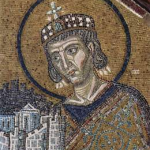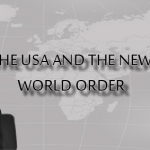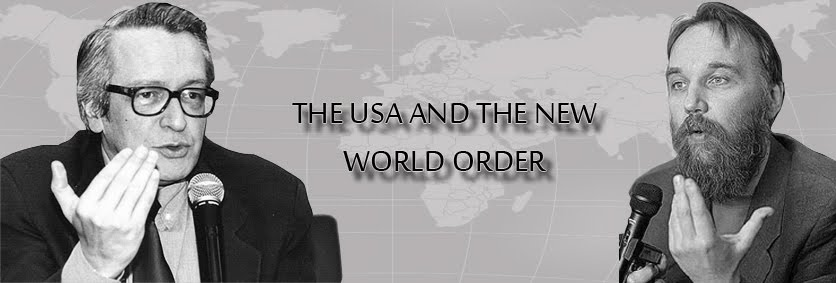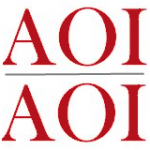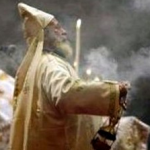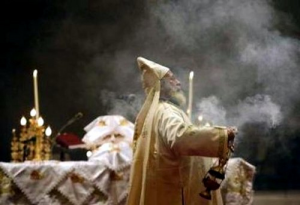Deprecated: trim(): Passing null to parameter #1 ($string) of type string is deprecated in
/home/aoiusa/public_html/wp-content/plugins/sexybookmarks/public.php on line
388
Deprecated: trim(): Passing null to parameter #1 ($string) of type string is deprecated in
/home/aoiusa/public_html/wp-content/plugins/sexybookmarks/public.php on line
394
Deprecated: trim(): Passing null to parameter #1 ($string) of type string is deprecated in
/home/aoiusa/public_html/wp-content/plugins/sexybookmarks/public.php on line
400
Acton Institute just published my review of Peter J. Leithart’s Defending Constantine: The Twilight of an Empire and the Dawn of Christendom. It appears on their website and in the upcoming issue of Religion and Liberty.
Source: Acton Institute | Rev. Johannes L. Jacobse
Defending Constantine by Peter J. Leithart (IVP Academic, 2010)
Reviewed by Johannes L. Jacobse
The argument that the lifting of the persecutions of early Christians and the subsequent expansion of the Christian faith led to a “fall” of the Christian Church is more widespread than we may believe. Academics have defended it for years. Popular Christianity, especially conservative Protestantism, takes it as a truth second only to the Gospel.
Towering over this argument is Constantine the Great. When Constantine faced the final battle that would determine if he became Rome’s new emperor, he saw a cross shining in the sky above the sun and heard the words, “By this sign conquer.” He took it to mean that divine providence chose him to be the emperor of a new and undivided Rome. His soldiers went to battle with a cross painted on their shields and won. The persecutions stopped. Christianity was the new religion of the empire.
But is the collective wisdom accurate? Is it true that the fourth century represents decline? No, argues Peter J. Leithart in his new book Defending Constantine.
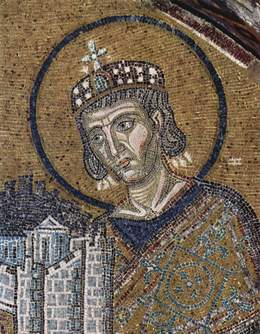
Emperor Constantine (Byzantine mosaic ca. 1000 from the Hagia Sophia)
“Constantine has been a whipping boy for a very long time and still is today,” Leithart begins. The historical and theological consensus identifies Constantine with “tyranny, anti-Semitism, hypocrisy, apostasy, and heresy.” Constantine, the conventional wisdom goes, was a “power hardened politician … a hypocrite who harnessed the energy of the Church for his own ends … a murderer, usurper, and egoist.”
This opinion has its roots in the work of John Howard Yoder, a prominent pacifist and “probably the most influential Mennonite theologian who ever lived,” Leithart argues. His influence is far reaching and includes such prominent names as Stanley Hauerwas of Duke University among others. “In Yoder’s telling, the Church ‘fell’ in the fourth century (or thereabouts) and has not yet recovered from that fall. This misconstrues the theological significance of Constantine … ”
Challenging Yoder’s thesis is not the only reason Leithart wrote the book but it certainly is the most compelling. Leithart believes Yoder’s pacifist preconceptions distort the historical record to such a degree that they blind us to the inherent moral power of the Christian faith to transform and elevate human culture. The pacifism of Yoder and like-minded disciples, Leithart argues in so many words, is nothing less than a debilitating emasculation of the Christian faith.
Rescuing the historical narrative from the strictures of a Yoder-like pacifism is no easy task. Pacifist ideas hold tremendous moral power because they appeal to an unblemished definition of personal virtue. It enables the pacifist to occupy a moral high-ground that is virtually unassailable. Who, after all, really wants violence? And who, in defending the necessity of violence, does not feel the heat of the pacifist’s disapproving stare?
The culture surrounding the early Christians was often violent. But the violence, while often senseless, still has a cultural and thus comprehensible context. Violence was endemic in pagan culture. It often was seen as divinely ordained. It’s the historian’s task to uncover, define, and describe it for us. It takes real work to describe it properly and the reader must labor to understand it. When the narrative has to throw off the strictures of pacifism and other anachronistic preconceptions, the task is even harder.
Rescuing the historical narrative then requires two things. First, the modern animus against violence must be seen for what it is: a moralistic precondition imposed on the text and fundamentally a-historical. Second, a new narrative free of the precondition has to be written; history needs to be rediscovered. This requires an able historian who is also a good writer.
Leithart accomplishes both. First he is very clear in his purposes and approach. He pulls no punches, couches nothing in euphemism, and makes no appeals to false virtue. Second, Leithart has the novelist’s gift for description and detail. He captures the native lyricism of the language. The book is a joy to read.
His narrative reaches deep into the pagan world, revealing the thoughts and beliefs that animated it. His well-rounded portraits show how and why the Gospel was indeed a radically new way of seeing the world, and why Christians represented a grave threat to the moral legitimacy of the Empire. It is a tall order to pull off for a historian. Understanding a different culture is hard enough. Trying to describe it to others is even harder. David Bentley Hart accomplished the same thing in his recently published Atheist Delusions: The Christian Revolution and Its Fashionable Enemies
(although his opinion of Constantine leans toward the Yoder camp). Perhaps these books portend a recovery of the historical task free of anachronistic cant.
The late Orthodox theologian Alexander Schmemann wrote in his popular history The Historical Road of Eastern Orthodoxy years ago that Constantine exemplified the transition from pagan antiquity to Christian culture. The complexity of his life and rule is not due to crass self-interest and hypocrisy that the modern critics claim (indeed, what does modern criticism allow beyond the condemnation of putative motives?). Instead, his life reflects the very real existential conflicts when a culture transforms itself into something new.
Leithart would most likely agree. The emergence of Constantine, particularly his embrace of Christianity, represents a cultural shift of the highest order despite the moral problems, ambiguities, even contradictions expressed throughout his life. In fact, these problems represent some of the conflicts that emerge when cultures change. The great transformation from pagan to Christian civilization was an organic enterprise. It happen in space and time. It was more than an architect’s plan. It took real sweat to build the walls and shingle the roof.
And therein lies the value of Leithart’s book. In laying out for us the chronology and ideas of the momentous shift, from Constantine’s conversion, Nicea, the Christian foundations of law and so forth, he shows us how pagan culture was, in the end, baptized.
Reducing Constantine to a marginal figure based on nothing more than unexamined moralistic preconceptions (political correctness), reflects a debilitating paucity of moral vision. This truncated vision, this failure of imagination and thought, has contributed to the failure of Christians to address the very real challenges brought by secularism and other forces that deny the sacred dimension of our lives. Christians who still hold to these preconceptions have no clue about what faces them today and the real battle that needs to be fought.
Pope Benedict of Rome and Patriarch Kyrill of Moscow have both affirmed that Western Culture needs to return to its Christian roots. It needs to uncover the knowledge and power of that initial baptism of culture that occurred in the age of Constantine and in no small measure under Constantine’s protection (the Orthodox Church honors Constantine with the title “Equal to the Apostles”). Indeed, this call to re-evangelize is rapidly becoming the common ground between the Churches of East and West.
That too is Leithart’s vision and therein lies the value of Defending Constantine. Leithart has given us a clear, comprehensible, theologically sound, and beautifully written history of our beginning. It is, I believe, a book of tremendous value for all orthodox Christians.
Rev. Johannes L. Jacobse is President of the American Orthodox Institute in Naples, Fla., and a priest in the Antiochian Orthodox Christian Archdiocese.
Books cited:

 March 9, 2011 – 17:12 AMT 13:12 GMT
March 9, 2011 – 17:12 AMT 13:12 GMT